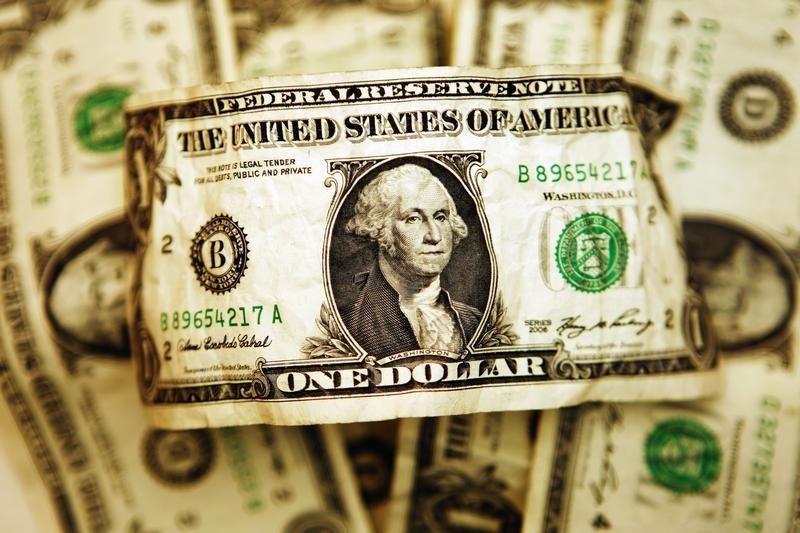By Gina Lee
Investing.com – The dollar was down on Friday morning in Asia but remained near three-week highs. Strong economic data from the U.S. rekindled expectations that the U.S. Federal Reserve will begin asset tapering earlier than expected and helped capped the U.S. currency’s losses.
The U.S. Dollar Index that tracks the greenback against a basket of other currencies inched down 0.03% to 92.895 by 10:30 PM ET (2:30 AM GMT).
The USD/JPY pair edged up 0.17% to 109.88.
The AUD/USD pair inched down 0.03% to 0.7287 and the NZD/USD pair inched down 0.01% to 0.7063.
The USD/CNY pair inched up 0.08% to 6.4618. The offshore yuan last traded at 6.4530 to the dollar as the Chinese currency faces pressure from growing worries about China's real estate sector. All eyes are on China Evergrande Group (HK:3333) and its coupon payment due next week.
The GBP/USD pair was steady at 1.3788.
The U.S. data, released on Thursday, showed that core retail sales grew 1.8% month-on-month and retail sales grew 0.7% month-on-month in August.
September's Philadelphia Federal Reserve Manufacturing Index was 30.7, while the Philly Fed Employment was at 26.3.
"Yesterday's data were pretty strong across the board. Markets have been worried that consumption would be weak in August because of the COVID-19 Delta variant. But retail sales were surprisingly strong." Nomura Securities chief currency strategist Yujiro Goto told Reuters.
Investors will now wait and see whether the data will impact the Fed’s timeline for asset tapering when the central bank hands down its policy decision next week. They also await the Michigan Consumer Expectations and Michigan Consumer Sentiment indexes for September, due later in the day.
In Japan, the ruling Liberal Democratic Party's (LDP) leadership race that determines who becomes the country’s next prime minister, had a limited impact on the yen so far. The race formally kicks off on Friday ahead of a Sep. 29 vote.
COVID-19 vaccine minister Taro Kono is the forerunner in the race, followed by former foreign minister Fumio Kishida and former internal affairs minister Sanae Takaichi.
"The world's major macro players are not expecting big policy shifts. A lack of moves in the yen is a testament to that," Credit Suisse (SIX:CSGN) vice chairman and chief economist Hiromichi Shirakawa told Reuters.
However, uncertainty about the result increased after former internal affairs minister Seiko Noda threw his hat into the ring on Thursday.
